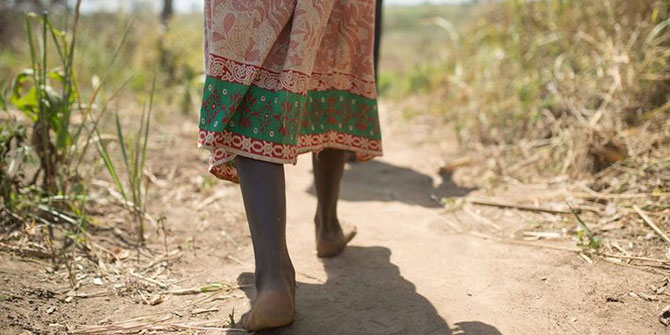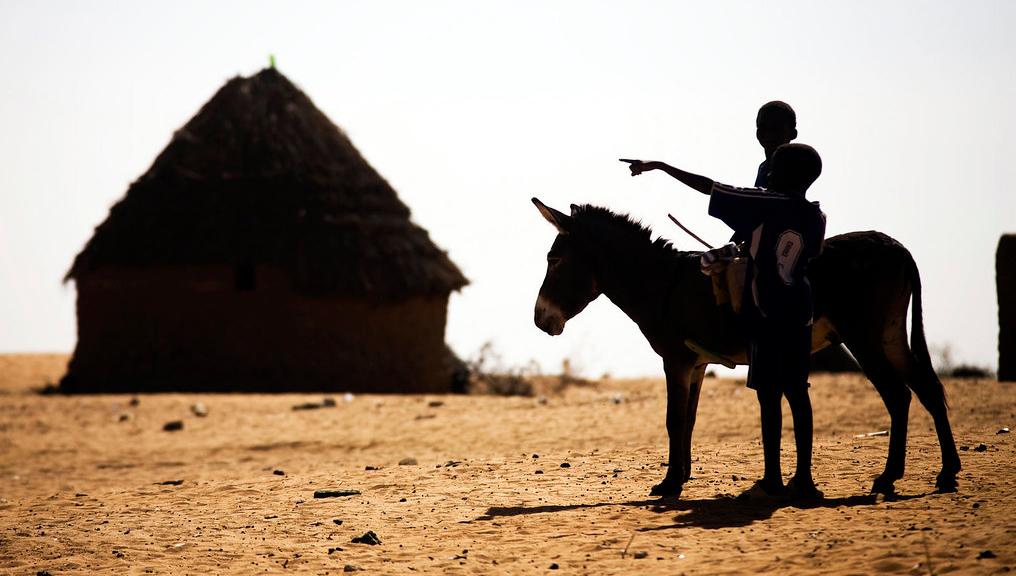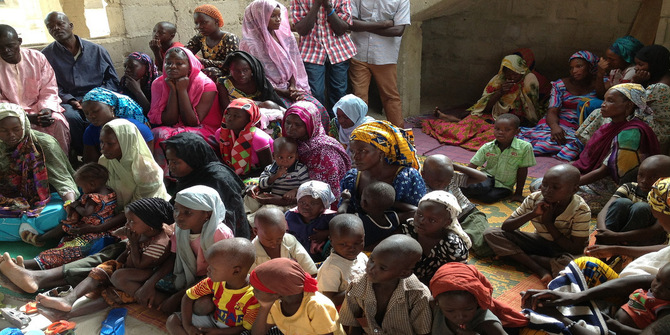In scarcely 100 short pages, this excellent addition to the Ohio Short Histories of Africa series offers a valuable perspective on Liberia’s outgoing President, and Africa’s first elected female Head of State. With its small size yet wide scope, it sometimes reads less as a biography of Ellen Johnson Sirleaf, and more as a potted history of the Republic of Liberia from the American Colonization Society to the Ebola crisis. It is none the worse for that, writes Calum Fisher.
Notwithstanding heady talk of a “biographical turn,” biographical methods and approaches remain marginal amongst professional historians and certainly social scientists. Pamela Scully’s book  seems pitched to straddle the academic/popular divide and as such skilfully demonstrates not only the “accessibility” but also the scholarly value of biography. With the life of President Sirleaf serving as a thread throughout (albeit a near-vanishing one at times), the author surveys the modern history of Liberia with admirable economy and insight, and finds many of the dilemmas and contradictions of the country’s past and present embodied in her subject.
seems pitched to straddle the academic/popular divide and as such skilfully demonstrates not only the “accessibility” but also the scholarly value of biography. With the life of President Sirleaf serving as a thread throughout (albeit a near-vanishing one at times), the author surveys the modern history of Liberia with admirable economy and insight, and finds many of the dilemmas and contradictions of the country’s past and present embodied in her subject.
Ellen Johnson was born, in 1938, deep within the elite social milieu and intersectional privileges of Americo-Liberian Monrovia. She grew up on the same street as the all-important US embassy; her father was active in politics and in the government of President William Tubman (1944-1971); her mother ran an elementary school, and was a preacher in the Presbyterian churches associated with elite society. Her parents were, however, adopted rather than born into this dominant minority, targets of the ‘Christian duty’ felt by many wealthy Americo-Liberian families to liberate ‘tribal children’ from rural areas in order to serve in their homes as servants or wards (p.23.) She thus spent her childhood summers with relatives in a very different world – the marginalised rural hinterland of the indigenous majority. Scully evokes well the settler-colonial nature of mid-century Liberian society, complete with its system of indirect rule by chiefs over “tribal areas”; and annual public re-enactments of “settlers” (dressed in the fashions of the Antebellum south) firing cannon upon hordes of “natives” (wearing traditional costume and face-paint.) The state motto remains to this day the distinctly exclusionary, “The Love of Liberty Brought Us Here.”
Married to James Sirleaf aged 17 (he became violent and abusive and they later divorced), the future president pursued further education in the United States, ultimately graduating from Harvard with a Masters in Public Administration in 1971. In the subsequent decades prior to her ascension to the presidency, she operated in the world(s) of international business and diplomacy, punctuated by forays into domestic politics. First entering government in 1972-3 under President William Tolbert (1971-1980), she soon left to take up a role at the World Bank before returning as Minister of Finance in 1979. She had a front-row seat for the bloody 1980 coup that brought Master Sergeant Samuel Doe (1980-1990) to power, the first indigenous leader in Liberia’s 133 years as an independent republic.

the then military government which led to her arrest and a 10 year prison sentence
but she was released a year later. Photo credit: http://bit.ly/2lCUTYe
One of the few cabinet ministers from the ancien regime to live through Doe’s takeover, Sirleaf even served in his government for some months before fleeing the country. She spent the remainder of the decade working in banking and finance in Kenya and the United States, except for a tilt at opposition politics in Doe’s stage-managed 1985 elections that ultimately landed her in prison for seven months. Her early association with Charles Taylor was simply, she has always maintained, in the interest of removing Doe, and came before Taylor’s future depredations could possibly have been foreseen. In any case, their alliance was brief. As Liberia pitched into its first civil war (1989-1996), Sirleaf was appointed UNDP’s Africa chief and assistant UN Secretary-General. She stood against Taylor in the 1997 presidential elections and was defeated – unsurprising in the face of his infamous unveiled-threat-cum-campaign-slogan, “He killed my ma’, he killed my pa’, but I will vote for him.” As the second civil war (1999-2003) beckoned, Sirleaf lived in Abidjan and established a venture-capital firm for African investors.
Scully builds a convincing portrait of the woman who would ultimately return to win the 2005 presidential election, and it is a pity that the payoff (the discussion of her presidency itself) is so brief and oddly perfunctory. The overall message, however, is clear – decades as a fully-paid-up member of the international great-and-good, fluent ‘in the language of international capital and development’ (p.89), translated for Sirleaf into a hyper-moderate, technocratic vision of government, ‘staffed by people educated [like herself] in finance, management, and administration’ (p.102) and ‘rooted in Western assumptions and structures’ (p.112.)
This vision proved, however, far more legible to, and indeed celebrated by, her friends abroad than her people at home. Awarded the Nobel Peace Prize in 2011, Sirleaf succeeded in attracting international intervention into Liberia’s domestic governance to a historically unprecedented extent, turning the country, as Scully puts it, into ‘Development Central’ (p.89). However, while there were undoubted successes and achievements, the country in fact remains one of the least-developed on the planet. The author is right to acknowledge the sheer scale of the challenges she faced, but also to ask pointedly whether Sirleaf’s ideology of government could ever be remotely adequate to addressing them.
The President’s faith, for instance, in the capacity of foreign capital and investment to transform Liberia seems, to put it mildly, optimistic given the lamentable power position of the Liberian state in the face of international capitalist interests. This is nowhere better exemplified than by its infamously “generous” concession agreements with the likes of the Firestone Tire and Rubber Company – agreements that Sirleaf seemed unwilling and/or unable to substantively challenge. Can George Weah, her successor and opposite in so many respects, fare any better? It is an unenviable task.
Ellen Johnson Sirleaf. Pamela Scully. Ohio University Press, 2016
The views expressed in this post are those of the author and in no way reflect those of Africa at LSE blog or the London School of Economics and Political Science.





